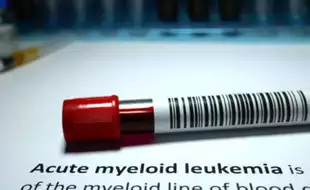
Coffee contains compounds that reduce inflammation - thought to be involved in cancer development
Head and neck cancers are among the deadly diseases that have seen a continuous uptick across the world in the last few years. Experts say alcohol and tobacco consumption are major reasons behind the increase in the number of people with this cancer. However, you can mitigate the risk by drinking this caffeinated beverage daily.
According to a new study, your morning brew could lower your risk of head and neck cancer by at least 41 per cent. Sipping 3-4 daily cups of coffee has a favourable effect on cancer risk, according to an analysis performed by researchers at the University of Utah School of Medicine and Huntsman Cancer Institute.
Experts say this cancer develops in more than 30 areas across the head and neck, including the mouth, lips, throat, voice box, nose, sinuses, and salivary glands.
India has a high incidence of head and neck cancer, accounting for roughly one-third of the global burden, with an age-standardized incidence rate. In the US, around 54,000 new cases were diagnosed in 2023, with an estimated 2 per cent of all cancer deaths.
How does coffee reduce the risk of cancer?
According to study authors, coffee contains compounds that reduce inflammation—thought to be involved in cancer development. It is also a great drink to improve insulin sensitivity, which helps your body to regulate blood sugar.
Insulin resistance and type 2 diabetes have been linked to higher risks of some cancers.
“While there has been prior research on coffee and tea consumption and reduced risk of cancer, this study highlighted their varying effects with different sub-sites of head and neck cancer, including the observation that even decaffeinated coffee had some positive impact,” said the study's senior author, Dr.Yuan-Chin Amy Lee.
“Coffee and tea habits are fairly complex, and these findings support the need for more data and further studies around the impact that coffee and tea can have on reducing cancer risk,” he added.
How was the study conducted?
Researchers analyzed 14 studies on coffee and tea consumption, which altogether yielded information on 9,548 patients with head and neck cancer and 15,783 people without the disease.
Those who participated in the study were given questionnaires about how many cups of caffeinated and decaffeinated coffee they drank daily. Compared with non-coffee-drinkers, people who drank more than four cups of caffeine-loaded coffee daily had a 17 per cent lower chance of getting head and neck cancer overall, the study published in the journal CANCER found.
They also had 30 per cent lower odds of having cancer of the oral cavity—also known as cancer—and 22 per cent lower odds of having throat cancer.
According to the study, three to four cups lower hypopharyngeal cancer by 41 per cent.
What are the types of head and neck cancers?
Head and neck cancers include cancers in your mouth, parts of your throat, and other related structures.
- Oral cancer
- Salivary gland cancer
- Nasopharyngeal cancer
- Oropharyngeal cancer
- Hypopharyngeal cancer
- Laryngeal cancer
Signs and symptoms of head and neck cancer
Doctors say the symptoms of head and neck cancer in the initial stages are often mild as they mimic less serious conditions like a cold or sore throat. Depending on the type of cancer, you may experience:
- A persistent sore throat
- Earaches and infections
- Frequent headaches
- Pain in your face that does not go away
- Pain in your upper teeth
- Pain when you chew or swallow
- Hoarseness
- Breathlessness
- A lump in your throat, mouth, or neck
- A sore tongue
- Frequent nosebleeds
- A white and red patch on your gums
Get Latest News Live on Times Now along with Breaking News and Top Headlines from Health and around the world.


